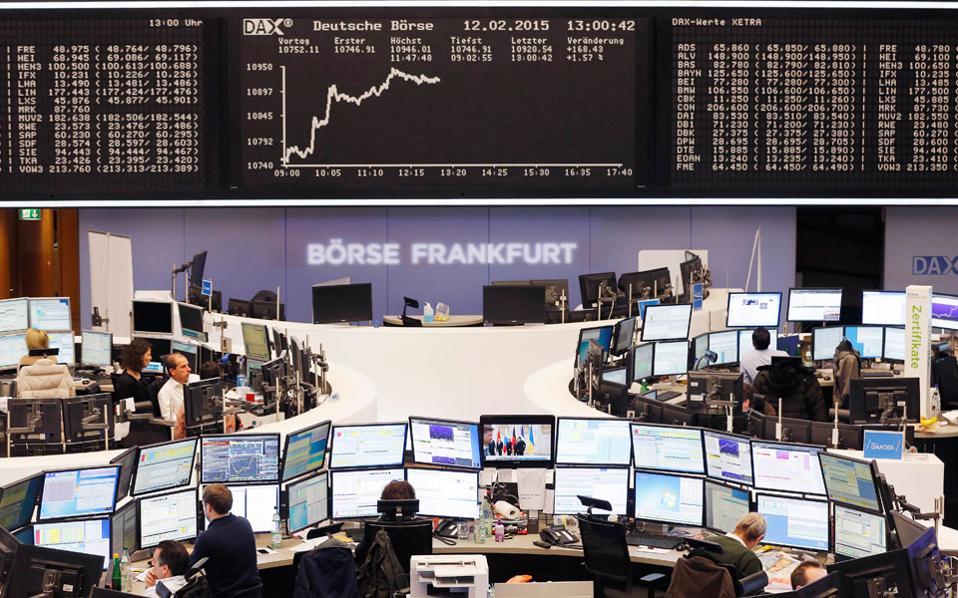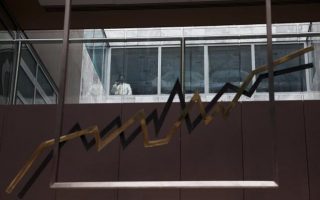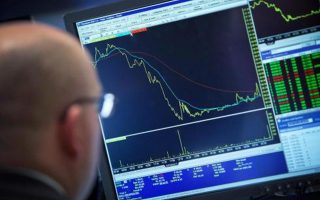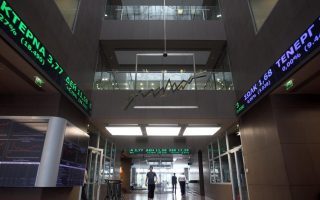European stocks bounce back from worst week in six

European stocks rebounded from last week's heavy selloff and the dollar rose broadly on Monday, with investors taking reassurance from China fixing its yuan exchange rate slightly higher for the second day running.
Asian markets were more volatile and emerging market currencies and oil remained very weak: US crude was anchored near a six-year low and the Turkish lira slumped to its lowest ever.
The FTSEuroFirst 300 index of leading shares was up 0.3 percent at 1,532 points, clawing back some of last week's 3 percent decline – its biggest loss in six weeks – although drifting lower from opening levels on Monday.
Wall Street was expected to open slightly higher.
Germany's DAX was up 0.3 percent and France's CAC 40 up 0.5 percent. Britain's resource and commodity-heavy FTSE 100, however, was 0.2 percent lower.
"After a positive start, sliding commodity prices are once again weighing on equity markets with Britain's FTSE 100 slipping back and pulling broader European markets off their highs as well," said Michael Hewson, chief markets analyst at CMC Markets.
Earlier in Asia, MSCI's broadest index of Asia-Pacific shares outside Japan fell 1 percent, adding to last week's loss of 2.6 percent after Beijing's yuan devaluation buffeted global financial markets and fanned concerns about China's economy.
Small in Japan
The yuan fell more than 4 percent at one point last week, pulling down riskier assets including emerging currencies globally on fears of a global currency war. But China slowed the pace of the currency's drop, and on Monday fixed it higher for the second day in a row.
Emerging currencies continued to struggle. The rouble hit a six-month low, Malaysia's ringgit held near a 17-year low and Turkey's lira fell below 2.86 per dollar for the first time ever.
With the big focus on whether the Fed raises interest rates as early as next month, the dollar was the major winner.
"We remain patiently bullish on the dollar through what we expect to be a choppy second half of August," BNP Paribas FX strategists wrote in a note to clients on Monday.
The euro was down 0.2 percent at $1.1090, scaling back earlier losses after the euro zone reported a record 26.4 billion euro non-seasonally adjusted trade surplus in June.
Euro investors also weighed up the growing likelihood of a Greek confidence vote after a rebellion within the ruling Syriza party over a new 86 billion euro bailout deal.
The dollar gained 0.2 percent against the yen after Japan's economy shrank in the second quarter.
The 0.4 percent contraction wasn't as large as the 0.5 percent fall expected, but concerns that the third quarter may offer only mild improvement are rekindling expectations of further monetary easing.
The benchmark 10-year US Treasury bond yield slipped two basis points to 2.18 percent.
Crude oil, another market churned last week by China's currency move and its implications for commodity demand, continued to struggle.
US crude was down 1.6 percent at $41.82 a barrel, within reach of a six-year trough of $41.35 struck on Friday.
[Reuters]





